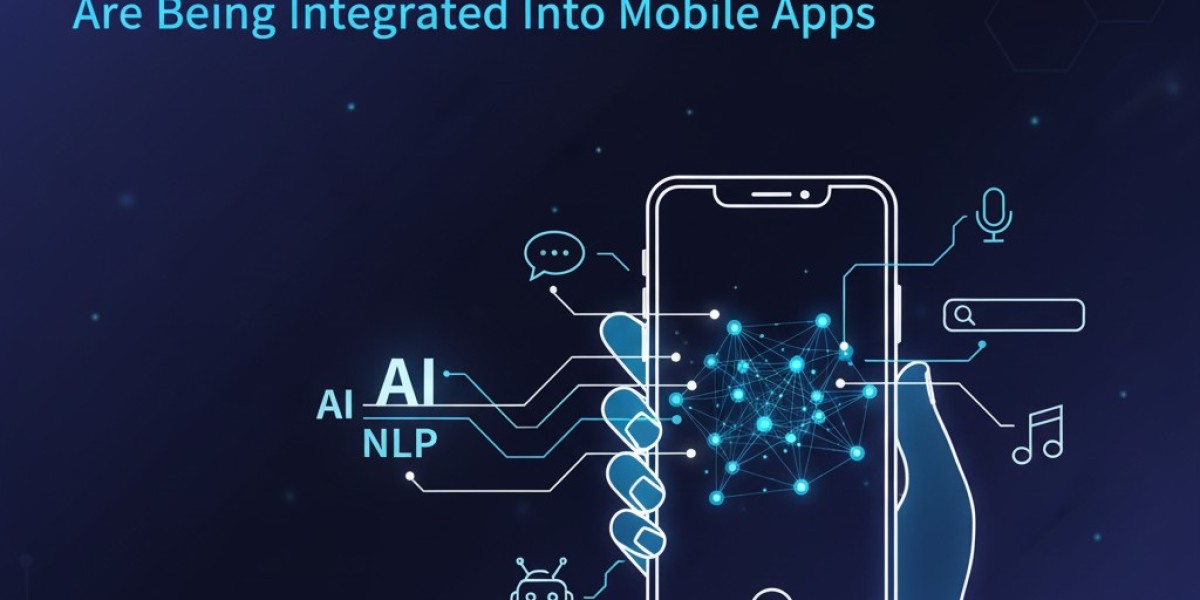The rise of Large Language Models (LLMs) is shaping the future of technology faster than most of us imagined. From powering virtual assistants to enhancing customer support, these AI-driven models are finding their way into almost every industry. One of the most exciting transformations is happening in the field of mobile app development. Businesses and mobile application developers are now integrating LLMs into their apps to create smarter, more personalized, and interactive experiences for users.
In this article, we’ll explore how LLMs are being used in mobile apps, the benefits they bring to businesses and users, and why partnering with a professional mobile app development company is crucial to leveraging this technology effectively.
What Are Large Language Models (LLMs)?
LLMs are advanced artificial intelligence models trained on massive datasets that allow them to understand and generate human-like text. Unlike traditional chatbots or rigid AI systems, LLMs can interpret context, answer complex questions, and even generate creative content. Popular examples include OpenAI’s GPT series and Google’s PaLM models.
For mobile application developers, LLMs are game-changers because they can add natural communication, intelligent recommendations, and real-time data analysis into apps—without requiring extensive rule-based programming.
Why LLMs Are Transforming Mobile App Development
With mobile usage increasing daily, businesses are under pressure to deliver smarter apps that stand out in competitive markets. LLMs are proving to be the perfect solution by offering:
1. Personalized User Experiences
LLMs analyze user behavior, preferences, and past interactions to deliver personalized recommendations. For example, a shopping app can use LLMs to suggest products tailored to individual customers, improving satisfaction and retention.
2. Smarter Chatbots and Virtual Assistants
Traditional chatbots often frustrate users with repetitive responses. LLM-powered chatbots, however, can engage in natural conversations, provide relevant answers, and even predict user intent. This is why many businesses are now investing in app development that includes AI-driven customer support systems.
3. Enhanced Search and Navigation
Mobile apps are becoming more intuitive with LLMs. Instead of users typing specific keywords, they can use conversational search queries like “Find me Italian restaurants nearby with vegan options.” The model processes the request and delivers accurate results quickly.
4. Multilingual Support
LLMs are trained in multiple languages, allowing apps to reach a global audience. For businesses targeting international markets, integrating an LLM ensures seamless communication across regions without requiring manual translation.
How Mobile Application Developers Are Using LLMs
Today’s mobile application developers are embracing LLMs for tasks that go beyond traditional coding. Here are some practical use cases:
E-commerce apps: Generating product descriptions, providing shopping assistance, and handling customer queries.
Healthcare apps: Offering symptom checkers, medication reminders, and answering common health-related questions.
Education apps: Delivering interactive lessons, tutoring in natural language, and generating practice exercises tailored to learners.
Finance apps: Helping users understand financial products, track expenses, and even get AI-driven investment suggestions.
By embedding LLMs into these areas, a mobile app development company can drastically reduce manual workload while improving overall app functionality.
Benefits for Businesses
Adopting LLMs in apps isn’t just about adding trendy AI features—it has real business value.
Improved Customer Engagement: Users are more likely to interact with apps that “understand” them.
Operational Efficiency: Automating tasks like FAQs, data processing, and content generation saves time and costs.
Higher Retention Rates: Personalized experiences lead to greater customer loyalty.
Scalability: Businesses can serve more users without needing large customer support teams.
For companies looking to future-proof their digital presence, working with a skilled mobile app development company ensures that LLM integration is smooth, secure, and scalable.
Challenges in Integrating LLMs
While the benefits are impressive, integrating LLMs into mobile apps does come with challenges:
Data Privacy Concerns: Handling sensitive user data requires strong security protocols.
High Computing Power: LLMs demand resources, and developers need to optimize apps to run efficiently.
Bias in AI Models: Since LLMs are trained on vast datasets, developers must ensure fairness and accuracy in responses.
Continuous Updates: AI technology evolves quickly, so app development teams must stay updated with the latest versions and tools.
Why Work With a Mobile App Development Company?
For businesses, simply plugging an LLM into an app isn’t enough. It requires expertise in both AI and mobile app development to ensure success. A professional mobile app development company can:
Customize LLM features for specific industries.
Optimize performance so apps remain fast and responsive.
Implement strong security measures to protect user data.
Provide ongoing support to adapt to AI advancements.
By partnering with the right development team, businesses can unlock the full potential of LLMs while focusing on their core operations.
The Future of App Development With LLMs
Looking ahead, the role of LLMs in mobile apps will only expand. Imagine travel apps that not only book flights but also act as personal concierges, or healthcare apps that provide real-time medical advice. For mobile application developers, the possibilities are endless.
Businesses that act early and integrate LLMs with the help of a trusted mobile app development company will have a significant competitive advantage. The combination of AI and app development is no longer optional—it’s becoming the new standard for success in the mobile-first world.
Final Thoughts
The integration of Large Language Models into mobile apps is more than just a trend—it’s a technological shift that is redefining how people interact with digital platforms. From smarter chatbots to personalized experiences, LLMs are transforming the entire landscape of mobile app development.
For businesses ready to innovate, now is the time to partner with skilled mobile application developers and embrace this AI revolution. The apps of tomorrow are being built today, powered by LLMs and guided by forward-thinking app development strategies.








